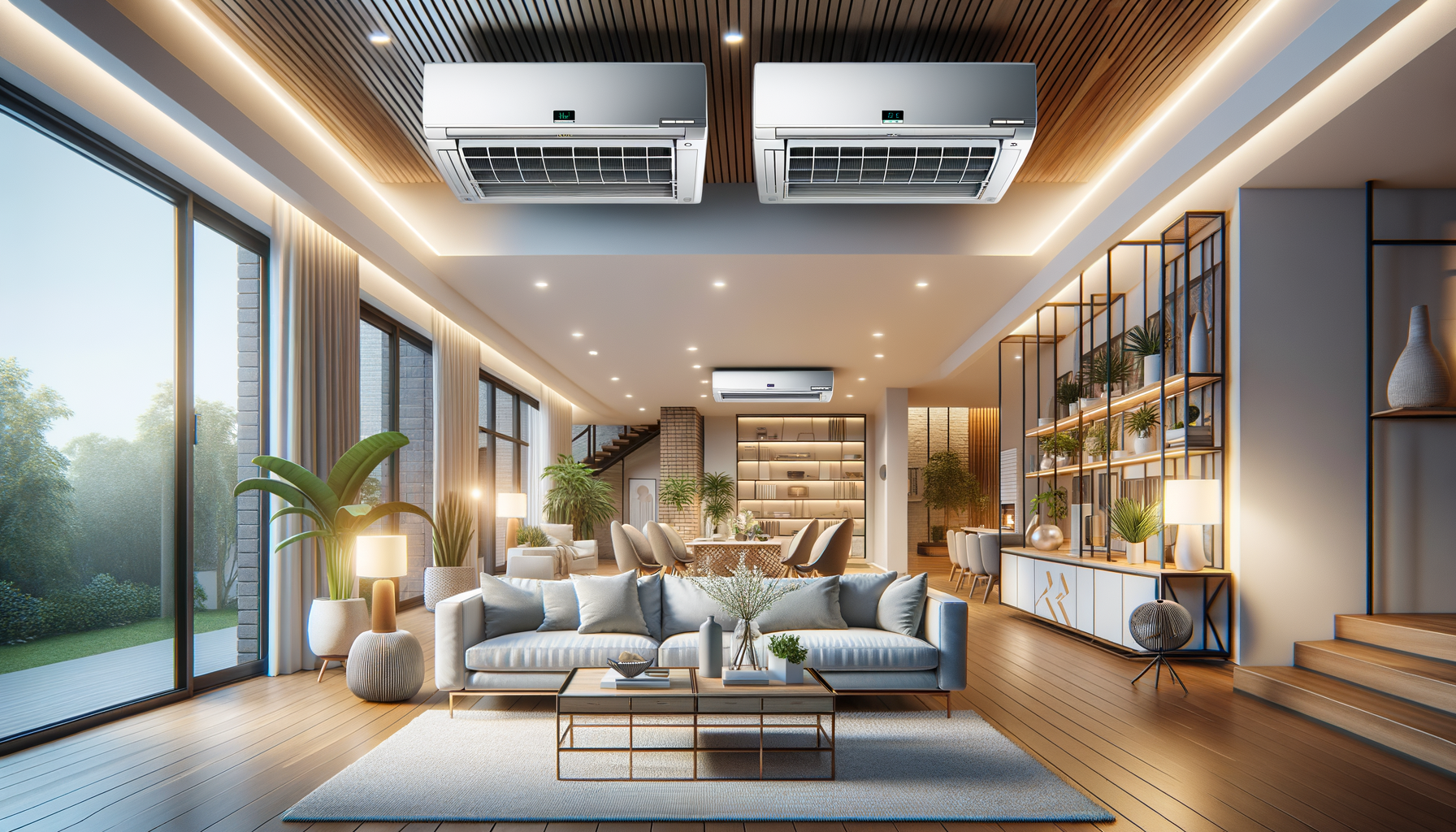
Upgrade Your Home Cooling with Energy-Efficient AC Units
The Evolution of Air Conditioning Systems
Air conditioning has come a long way since its inception. Initially, air conditioning units were large, bulky, and consumed a significant amount of energy. Over time, technological advancements have revolutionized the way we cool our homes. Modern air conditioning systems are designed with energy efficiency in mind, ensuring that they consume less power while providing optimal cooling performance.
One of the key developments in air conditioning technology is the introduction of inverter technology. This allows the compressor to adjust its speed according to the cooling demand, which not only saves energy but also prolongs the lifespan of the unit. Furthermore, the use of eco-friendly refrigerants has significantly reduced the environmental impact of air conditioning systems.
In addition to these technological advancements, modern air conditioning units are equipped with smart features that enhance user convenience. For instance, many systems now come with Wi-Fi connectivity, allowing users to control their air conditioners remotely via smartphone apps. This level of control ensures that homeowners can maintain a comfortable indoor environment while optimizing energy usage.
Benefits of Energy-Efficient Air Conditioners
Investing in an energy-efficient air conditioner offers numerous benefits, both for the environment and for homeowners. One of the most significant advantages is the reduction in energy consumption. Energy-efficient units are designed to use less power, which translates to lower electricity bills. This is particularly beneficial during the hot summer months when cooling demands are at their peak.
Another benefit of energy-efficient air conditioners is their positive impact on the environment. By consuming less energy, these units help reduce greenhouse gas emissions. Additionally, many energy-efficient models use refrigerants that have a lower global warming potential, further minimizing their environmental footprint.
Moreover, energy-efficient air conditioners often come with advanced features that enhance indoor air quality. For example, some units are equipped with filters that remove dust, allergens, and other pollutants from the air, providing a healthier living environment. These features make energy-efficient air conditioners a smart choice for those looking to improve their home’s air quality while saving on energy costs.
Choosing the Right Air Conditioner for Your Home
Selecting the right air conditioner for your home involves considering several factors. The size of the unit is crucial, as an air conditioner that is too large or too small for your space can lead to inefficiencies and increased energy consumption. It’s essential to choose a unit that matches the cooling requirements of your specific area.
Another important consideration is the type of air conditioner. There are various options available, including window units, split systems, and portable air conditioners. Each type has its own set of advantages and is suitable for different applications. For instance, split systems are ideal for cooling multiple rooms, while portable units offer flexibility and are easy to move around.
Additionally, it’s important to look for units with high energy efficiency ratings. The Seasonal Energy Efficiency Ratio (SEER) is a standard measure of an air conditioner’s efficiency. Units with higher SEER ratings are more efficient and can help reduce energy costs over time. It’s also worthwhile to consider models with additional features such as programmable thermostats and smart home compatibility for enhanced convenience and energy management.
Installation and Maintenance Tips
Proper installation and maintenance are key to ensuring the longevity and efficiency of your air conditioning unit. When installing a new unit, it’s important to follow the manufacturer’s guidelines and, if possible, hire a professional to ensure that the installation is done correctly. Incorrect installation can lead to reduced efficiency and increased energy consumption.
Regular maintenance is also crucial. This includes cleaning or replacing filters, checking for refrigerant leaks, and ensuring that the unit’s components are in good working condition. Routine maintenance not only helps maintain the unit’s efficiency but also prevents costly repairs down the line.
Additionally, it’s important to keep the area around the outdoor unit clear of debris and vegetation. This ensures proper airflow and prevents the unit from overheating. By following these installation and maintenance tips, homeowners can enjoy the benefits of their air conditioning systems for many years to come.
Future Trends in Air Conditioning Technology
The future of air conditioning technology is promising, with ongoing research and development focused on enhancing efficiency and sustainability. One of the emerging trends is the integration of renewable energy sources, such as solar power, with air conditioning systems. This not only reduces reliance on traditional energy sources but also lowers operating costs.
Another trend is the development of smart air conditioning systems that utilize artificial intelligence to optimize performance. These systems can learn user preferences and adjust settings automatically to provide the most comfortable environment while minimizing energy use. Furthermore, advancements in materials and design are leading to the production of more compact and aesthetically pleasing units.
As environmental concerns continue to grow, the air conditioning industry is also exploring the use of alternative refrigerants with low environmental impact. These innovations are set to redefine the way we cool our homes, making air conditioning systems more efficient, eco-friendly, and user-centric.


